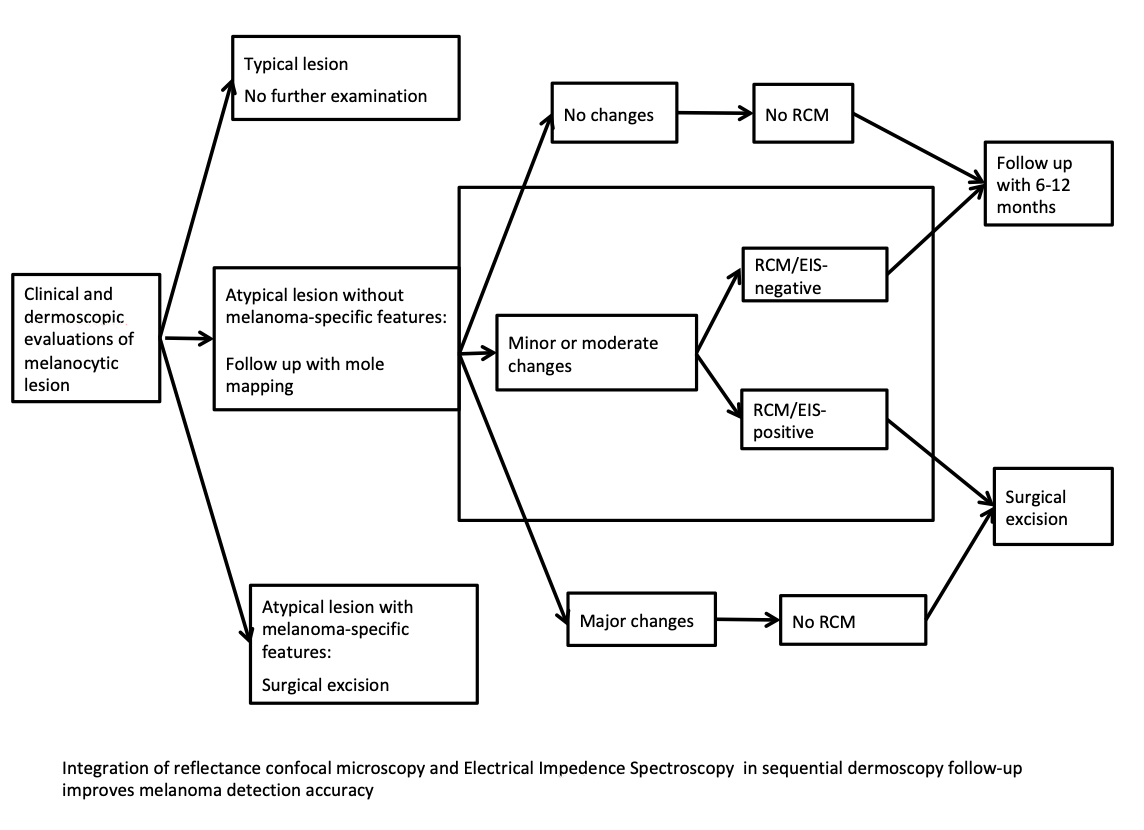
The steps taken are about avoiding unwanted tissue removal, whilst ensuring early detection and swift, curative action.
The first box you see is a common and welcome end point. Dermoscope aided, visual diagnosis by a specialist has confirmed you have no need to be concerned.
Regular checks remain a good idea but no further examination needs to be scheduled. A result which far outnumbers the opposite, where a problematic lesion is found during clinical examination.
Even then, the clarity is in a sense welcome and immediate treatment can be organised. Much of the chart above covers areas where there is less certainty.
The Grey Areas
Normal moles can look abnormal, or change in unusual ways. This is not a good reason in itself to resort to surgical removal, potential discomfort, or scarring.
Equally, we know that early detection is critical in ensuring that skin cancer treatment is successful, along with being able to carry out treatment in a minimal way.
Supporting both these views respects your body and is a core purpose of skin cancer screening. Using the latest, clinically proven techniques, to spot subtle changes in your skin:
- Digital Mole Mapping – Total body photography, to record and compare patterns over time. Valuable for people with higher risk factors and capable of picking up more than mole changes:
Mole Mapping → - Confocal Microscopy – An advanced system for looking beneath your skin. Often able to be used in place of a physical biopsy:
Confocal Microscopy → - Electrical Spectroscopy – The full title, electrical impedance spectroscopy, offers a clue. A system which measures tiny changes in resistance within your skin, with remarkable results:
Electrical Spectroscopy → - Integrated Treatment – Screening often confirms there isn’t a problem. When there is, immediate treatment counts:
Skin Cancer Treatment →
A Combined View
The aim of our skin cancer service is to combine the latest technology and expertise. To avoid, or reduce treatment, whilst ensuring this is successful when required.
Each step in the process can be a release, a pointer towards further investigation, or in rarer cases, an opportunity to treat skin cancers at an early stage.
If you would like to discuss the benefits skin cancer screening can bring, or to arrange an initial appointment, please get in touch with our friendly staff.
